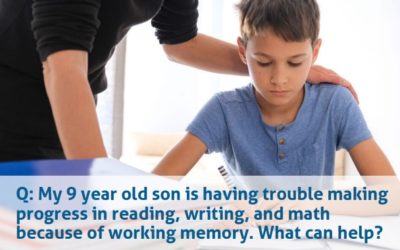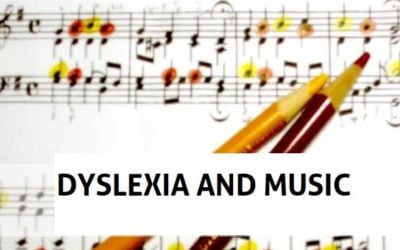What many tutors will have noticed is that many structured literacy strategies require frequent repetition because they focus remediation on tasks that are especially difficult for many dyslexic students – the automatic identification of the phonemes that make up words.
Not the Standard Track: Extracurriculars and Work Experience [Premium]
There are many ways of getting from A to Z and many of them don’t require a 4.0 GPA and elite school tracks. Dyslexics as a group may have trouble following the traditional route to their dream career because many of their academic strengths are late-blooming.
Fostering Creativity: The Early Life of Chuck Close [Premium]
Recently, I came across a paper, by Landmark College Professor Ken Gobbo, writing about the early life of artist Chuck Close – and this led me to an oral history recorded at the Smithsonian.
Dyslexia at Work: Dyslexia-Friendly Hiring? [Premium]
Research suggests that work teams that have at least one neurodiverse member are likely to be 30% more productive, but many companies have hiring practices that may exclude neurodiverse candidates before they are able to demonstrate their strengths.
Research Updates in Gifted Dyslexics [Premium]
Research into the Gifted Dyslexic population remains scarce, but there have been a few articles in the last years that may be helpful in identifying and supporting these students. One difficulty interpreting data from twice-exceptional research is that studies that focus solely on students with unevenness in scores may combine gifted dyslexic student scores with those who are gifted and on the autism spectrum. Because fluid reasoning scores may be very different between gifted and autistic populations, it’s difficult to draw conclusions for either group. As an example, Danika Maddocks in Gifted Child Quarterly undertook a review of 3891 K-12 school children, but failed to distinguish 2e-LD subpopulations. As a result, when she concluded that twice-exceptional LD students could outperform non twice exceptional students in […]
Nick Koshnick: StoriedWork.com An AI Co-Pilot for Non-Linear Thinkers
Nick Koshnick is a Stanford PhD and seasoned entrepreneur who raised money from companies like Google and Andreessen, and then sold the company.. He's also dyslexic. Now, he's co-founded StoriedWork.com with business partner Frank Corrigan. Storied has been nicknamed...
What Can Help with Working Memory Limitations?
Q: My 9 year old son is having trouble making progress in reading, writing, and Math because of working memory. What can help? Working memory is a type of memory that allows us to temporarily hold information 'in mind' to be used for other cognitive tasks. Some people...
Dyslexia and Music
"I'm dyslexic, so the notes just jump out at me. It's the same with words too. That's why the Key Editor in Cubase is the best thing for me as I see things in shapes and colors." — Grammy Award-winning composer producer Lorne Balfe Here in the United States, it's...
The Gift of Seeing People and Events from Multiple Perspectives [Premium]
There is a talent cluster that we’ve seen among dyslexics in diverse backgrounds, and it’s a gift of being able to see people and events from multiple perspectives. Within the MIND strengths framework, this could be in I for Interconnected Thinking, N for Narrative Thinking, or D for Dynamic Thinking. It is a gift to be able to visualize or or imagine a simulation of how people and events can be seen from different perspectives, and it allows empathy for people and situations that others might miss, or a connection of events that others see separately, and predictions that provide positive opportunities for bettering one’s situation or the world, or staving off problems. You might notice children who seem unusually empathetic or observant about the […]
Are There Any Group Activities That Benefit Dyslexic Students? [Premium]
Like non-dyslexic students, there can be a wide variations that exist between how students enjoy group activities. In general, extroverts love group activities, while introverts less so. But there are benefits from the selection of some activities that especially benefit dyslexic students. CREATE A POSITIVE CLASSROOM CULTURE FOR DIFFERENT LEARNERS First of all, it’s helpful to have a classroom culture that allows flexibility in learning and accepting of differences. Students can be encouraged to take a different approach while solving problems and demonstrating knowledge. A discussion about differences in learning at the beginning of the year can make students who know they learn differently, feel more welcome. Some teachers may also model their openness to solving problems or learning a different way. Offering students options […]
Dyslexia and Personal Relationships [Premium]
‘Dyslexic moments’ like in the BuzzFeed video with Becky and Corey may happen a lot depending on how significant dyslexia related challenges are. Besides car directions, there are little mistakes writing down phone numbers or addresses or jotting down notes. Supportive families know how to be flexible and roll with the unexpected. It’s not uncommon for people to wonder whether they should bring up their dyslexia as they get to know someone better. It’s not easy bringing up these things because it can call up all sorts of past memories of being in school and misunderstood, and chances are, a significant other may know little about dyslexia. Some people choose not to bring the subject up – while others may have not known they had […]
What is ‘Explicit’ Instruction and Why Does It Help with Dyslexia? [Premium]
If you look at almost any evidence-based guidelines for students with dyslexia, you’ll see the word ‘explicit’ in how instruction is delivered. Merriam’s Dictionary defines explicit as: “fully revealed or expressed without vagueness, implication, or ambiguity; leaving no question as to meaning or intent.” WHY IS EXPLICIT INSTRUCTION FOR DYSLEXIC STUDENTS? Remember that people with dyslexia tend to store information in explicit or declarative memory – with episodic memory areas being especially active. Activities that non-dyslexic people seem to acquire more effortlessly – like recognizing printed words, writing by hand, or retrieving math facts – are difficult if not impossible to learn without explicit instruction. For example, many non-dyslexic people may learn grammatical structure just through encountering different sentences when they are reading; dyslexic students, […]

![MIND Strengths for Tutors: Material Reasoning [Premium]](https://www.dyslexicadvantage.org/wp-content/uploads/2024/04/Material-Reasoning-Premium-2-400x250.jpg)
![Not the Standard Track: Extracurriculars and Work Experience [Premium]](https://www.dyslexicadvantage.org/wp-content/uploads/2024/04/Extracurriculars-and-Work-Experience-Premium-1-400x250.jpg)
![Fostering Creativity: The Early Life of Chuck Close [Premium]](https://www.dyslexicadvantage.org/wp-content/uploads/2024/04/Fostering-Creativity-The-Early-Life-of-Chuck-Close-DAs-400x250.jpg)
![Dyslexia at Work: Dyslexia-Friendly Hiring? [Premium]](https://www.dyslexicadvantage.org/wp-content/uploads/2024/04/Dyslexia-at-Work-Dyslexia-Friendly-Hiring-Premium-1-400x250.jpg)
![Research Updates in Gifted Dyslexics [Premium]](https://www.dyslexicadvantage.org/wp-content/uploads/2024/03/Research-Updates-in-Gifted-Dyslexics-A-400x250.png)



![The Gift of Seeing People and Events from Multiple Perspectives [Premium]](https://www.dyslexicadvantage.org/wp-content/uploads/2024/02/The-Gift-of-Seeing-People-and-Events-from-Multiple-Perspectives-da-400x250.jpg)
![Are There Any Group Activities That Benefit Dyslexic Students? [Premium]](https://www.dyslexicadvantage.org/wp-content/uploads/2024/02/Group-Classroom-Activities-400x250.jpg)
![Dyslexia and Personal Relationships [Premium]](https://www.dyslexicadvantage.org/wp-content/uploads/2024/02/Dyslexia-and-Relationships-400x250.jpg)
![What is ‘Explicit’ Instruction and Why Does It Help with Dyslexia? [Premium]](https://www.dyslexicadvantage.org/wp-content/uploads/2024/02/What-is-Explicit-Instruction-and-Why-Does-It-Help-with-Dyslexia-b-400x250.jpg)













